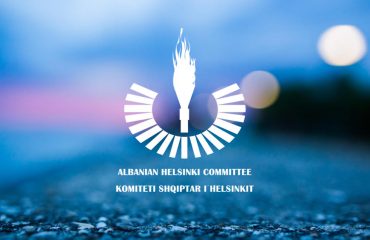The Albanian Helsinki Committee (AHC), as a follow-up to the Amicus Curiae on the appeal by Russian citizen Igor Kokunov, a role accepted by decision of the Meeting of Judges of the Constitutional Court, after following in its capacity as the public and not the subject that could have been notified by the Constitutional Court in the hearing session on this case on November 12, 2025, submitted to this Court the documentation and supporting documents it possessed on this case. These documents were submitted after AHC became familiar with the questions and documents that members of this Court submitted to the parties in this constitutional process, considering the fact that AHC has monitored the institutional practice of the extradition of Russian citizen I. Kokunov, although the Constitutional Court suspended earlier this process of extradition to the Russian Federation. Furthermore, this documentation was submitted before the judicial investigation by the Constitutional Court on this case was completed.
AHC was informed by the General Secretary of the Constitutional Court, although our letter was in fact addressed to the Chair of this Court and the case rapporteur, that the documentation made available by the Albanian Helsinki Committee on the case, was sent back without any action, with the argument that AHC is not a party in the constitutional adjudication, and therefore does not enjoy the right to submit evidence.
AHC expresses its profound concern about the refusing approach to official documentation provided by us, as an interested party in the adjudication of this case, and due to the fact that we were not notified to participate in a public hearing and were not heard although were present. The interpretation of the constitutional and legal framework in general regarding the role of amicus curiae before the Constitutional Court does not correspond with the best standards of the protection of fundamental human rights and the interaction of litigants involved in this adjudication process.
In this context, we consider that we need to bring again to attention of the Constitutional Court the importance of the standard of access to constitutional adjudication as part of article 42 of the Constitution, an obligation even for the Constitutitonal Court itself, while following judicial procedures conducted by it, a standard established in an expanded interpretation of the constitutional framework and best international practices in this regard.
Besides the above, referring to article 39/b of the Law on the Constitutional Court, participants in constitutional adjudication are also the subjects that have a direct interest in the case under review, and referring to article 26, paragraph 2 of the Rules of Procedure of Constitutional Adjudication, the process-verbal of the voting establishes the subjects to be summoned in the adjudication, which are: subjects against whieh a request has been submitted or that have a direct interest in the case under review; the body that has issued the act; any other subject whose participation is deemed necessary for the effective conduct of constitutional adjudication.”
From the entire regulatory and procedural framework of the administration of the constitutional judicial process above, it clearly results that AHC should have been part of the process as an interested party, amicus curiae, and notified about every phase of the process, from the moment it was accepted as such by the Court by decision of the Meeting of Judges.
In this sense, we regret that the legal provisions of the material law of the Constitutional Court in general have been interpreted in a narrowed manner, to the detriment of constitutional access, the administration of constitutional procedures, and the highest standards for the participation of third parties in constitutional adjudication, relativizing roles and contributions of civil society that are so necessary in the context of structural challenges and problems with respect for fundamental human rights by the Albanian state. Per the above, AHC considers that this instance, which is the second one repeated from earlier in the practice followed by the General Secretary of this Court for an expanded group of Albanian and regional civil society organizations, which offered their amicus curiae on the migration pact between the Albanian and Italian states, harms the environment of trust in cases of administration of constitutional justice, represents regress vis-à-vis civil society organizations, whose engagement has been known and accepted in constitutional adjudication, even before the constitutional amendments of 1998, when they were not legitimized to address this court, and with the consolidated practice of the European Court of Human Rights on the access it has created for civil society organizations when they expressed an interest to contribute with Amicus Curiae!




